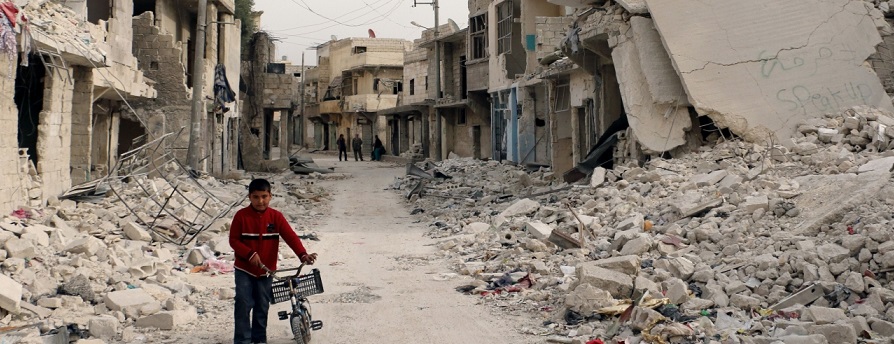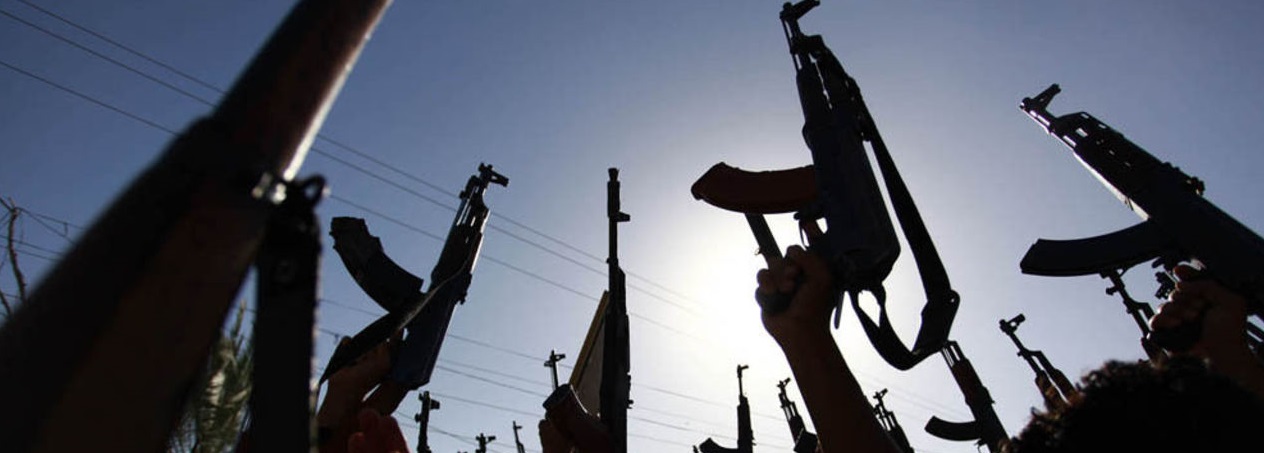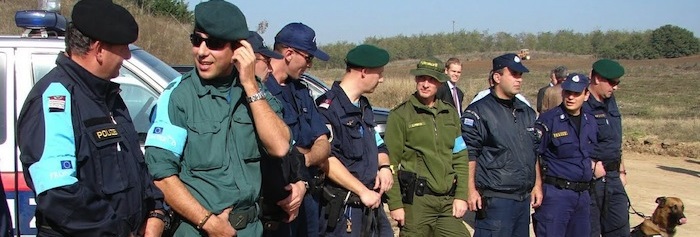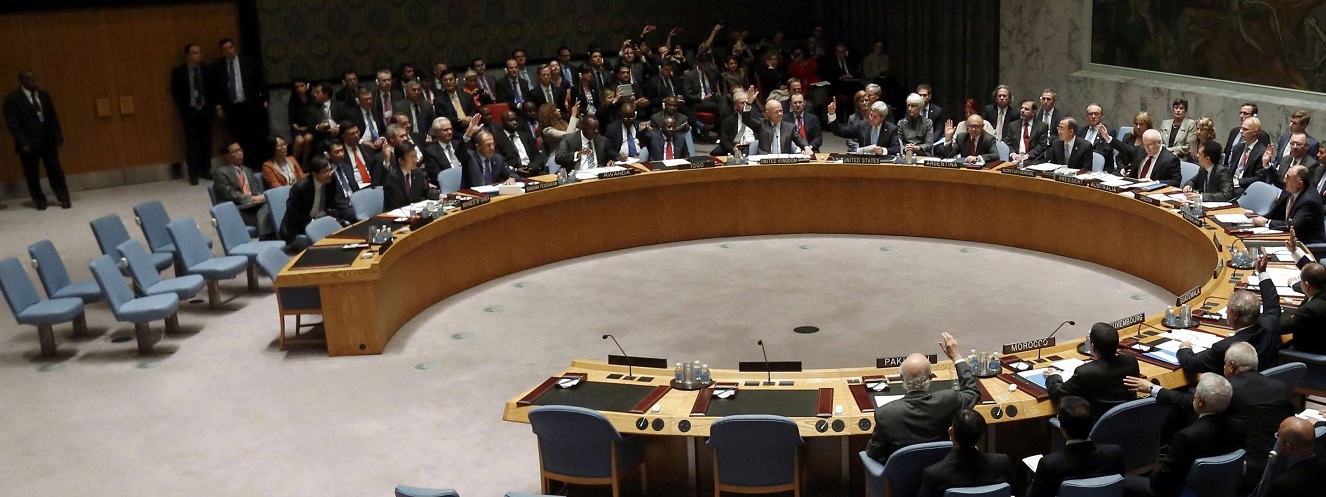Projects
The Centreâs research and outreach activities stem from its core focus on various aspects of security and development, with particular attention to the intersections between them. Within that broad array, Centre fellows are working on an ever-evolving list of specific projects, including established interests like maritime security and new priorities like disabilities and development. This page features a number of our current projects, grouped by thematic clusters; check for periodic updates here and in the Research Notes section of our Publications page.
 |
SECURITY AND DEVELOPMENT: EXPLORING THE INTERSECTIONS
One of the Centreâs core concerns is the intersection between security and development policy, and the associated challenges to our thinking about each of these concepts. CSSD fellows have explored these questions in the context of Canadaâs intervention in Afghanistan, refugee flows from the Syrian civil war, drug trafficking in Mexico, post-conflict reconstruction in Central Africa, governance of the Arctic, and more.
The Centre community has particular strengths in Africa, Europe, and North America. CSSD fellows David Black and Jenny Baechler co-managed the âAfricaâ group for the (DSFG) and Brian Bow worked with Veronica Kitchen (Waterloo) to co-manage the âNorth Americaâ group. Our participation in the DSFG project provided for several workshops and online meetings at ±«Óătv, and will lead to a number of publications.
Our colleagues at the Dallaire Institute have also explored the intersection of security and development, through their research and advocacy work on child soldiers. For more information on Dallaire Institute projects and publications, see their website at .
 |
ENVIRONMENT, MIGRATION, AND SECURITY
This is a new area of focus for CSSD, based on the intersection of interests among some core Centre fellows. It builds on Ruben Zaiotti and Kiran Banerjeeâs past work on migration and security, and Anders Haydenâs work on climate change and its effects. The CSSD has secured funding from DNDâs MINDS program for a workshop in 2022-23, to explore the security implications for Canada of climate-driven migration and displacement around the world. We look forward to a series of working papers and at least one collection of papers published as a special issue in a top-tier journal. Check here for updates on this project.
Matthew Schnurr and Larry Swatuk worked together a few years ago on a volume that explored the security implications of environmental change. Schnurrâs current multi-year research project is concerned with the impact of on development in Africa.
 |
DEVELOPMENT POLICY: CONCEPTS AND STRATEGIES
During his time as acting director of the Centre (2018-19), Anders Hayden organized a workshop at ±«Óătv on alternatives to GDP as a measure of national development. That workshop was part of a larger âBeyond GDPâ project (), which produced a new edited volumeââco-edited by Hayden, CĂ©ofride Gaudet, and Jeffrey Wilson.
Jenny Baechlerâs research is concerned with the making of development and security policy, and more specifically the complex mechanisms by which the efforts of various agencies are coordinated in a âwhole-of-governmentâ initiative.
David Blackâs volume, âco-edited with Stephen Brown and Molly den Heyerâhas now gone through two editions (2014, 2016). That project laid the groundwork for a SSHRC Insight Grant, with co-investigators Stephen Brown, John Cameron, and Liam Swiss, and collaborators Molly den Heyer and Shannon Kindornay, on Canadian development cooperation and the new politics of âpartnership.â With Deborah Stienstra, Stephen Estey, and Stephen Baranyi, David Black has been working on a project on disability and global development, with support from IDRC and SSHRC. The initial phase of this project resulted in a June 2015 workshop and a series of . Black, Estey, Stienstra, and Baranyi are continuing to develop this project, expanding the network of researchers and civil society collaborators and looking ahead to future events and publications.
John Cameron has explored representations of development in theory and practice, linking these questions to development and the general public. He is currently working (with Lauchlan Munro) on a SSHRC-funded, multi-year project titled âPublic Policy Advocacy for Global Sustainable Development in Canada.â Kristi Kenyon has also been working on NGOs and other transnational advocacy groups, but with a focus on their in the global South.
Peter Arthur continues to pursue research on development and democracy in sub-Saharan Africa. His latest book is the volume, , co-edited with Kobena Hanson and Korbla Puplampu.
 |
CONFLICT, VIOLENCE, AND THE STATE
Some CSSD fellows take a more âmacroâ view of these questions, focusing on statesâ capacity and their engagement with non-state (or transnational) challengers. Brian Bowâs past research (with Arturo Santa Cruz) assessed and explained the attempts to contain transnational criminal organizations in the 2000s. Alex Wilner has looked at and other non-state actors. And Aaron Ettinger has done extensive research on and their effects on international relations.
Others have taken a more âmicroâ view of these issues, focusing on the way individuals adapt to structural violence and war. Erin Bainesâ 2017 book, , explored gender identity, sexual violence, and the state in post-conflict Uganda. Her has focused on various aspects of gender, sexual violence, and post-conflict reconstruction. Recent ±«Óătv PhD Carla Suarez has also published in these areas, including a collection of research essaysââco-edited with David Black. Baines and Suarez co-authored a 2021 article, âââ: Familial Relations and the Social Reintegration of Ex-combatants,â published in Global Peacekeeping.
Doctoral candidate Michelle Legassicke has looked to the intersection between macro and micro, in her research on the political structures of rebel groups, and their relationships with local communities.
 |
REGIONAL COOPERATION ON INTERNAL (âHOMELANDâ) SECURITY
Brian Bow has undertaken SSHRC-funded research on both continental security cooperation and internal security collaboration in the North American context. This research looks comparatively at the way networks of government officials and law enforcement officers shape the design and implementation of national policies to respond to terrorism, organized crime, undocumented migration and human trafficking, natural disasters, and threats to critical infrastructure.
Ruben Zaiotti continues his work on the evolution of internal security cooperation in the European Union, with particular attention to border control, migration, and refugee policy, and has also published on comparative and cross-regional cooperation in Europe and North America. In 2016, Zaiotti published the edited volume (Routledge, 2016).
Bow and Zaiotti have also worked collaboratively on a comparative project on regional security cooperation in North America and Europe, supported by a SSHRC Connection grant, and co-organized by the CSSD and the Jean Monnet European Union Centre of Excellence (JMEUCE). Bow and Zaiotti co-hosted a workshop at ±«Óătv, and selected papers were published as a in 2020.
Leah Sarson and Adam MacDonald, both affiliated with the (NAADSN), have each made important contributions to the study of regional security governance in the Arctic. With Andrew Chater and Wilfrid Greaves, Sarson recently published an article for the .
Alex Wilner is working on a multi-year, SHRCC-funded project on cybersecurity and deterrence in Canada, which will make important contributions to ongoing debates on both conventional homeland defence and unconventional homeland security cooperation. Preliminary work has been published in and .
 |
DIPLOMACY AND INSTITUTIONS
Leah Sarsonâs recent research has explored the nature and purposes of Indigenous diplomacies, and their implications for International Relations theory. Her article, â,â was published in Millennium in 2022.
Ruben Zaiotti has researched and published on international organizations and regional institutions, especially the European Union. With Corneliu Bjola, he co-edited the 2021 volume .
Frank Harvey and John Mitton published several important studies on crisis bargaining and diplomacy, including articles on the question of . Alex Wilner has published extensively on the theory and practice of deterrence, including the 2021 volume, , co-edited with Andreas Wegner.
David Beitelman has studied defence diplomacy, and the sources and effectiveness of military-to-military contacts as bases for the development of confidence-building measures to prevent inadvertent escalation. His research looked at recent efforts by the US and China to work out understandings to prevent or contain incidents at sea.
Elikem Tsamenyiâs focused on the evolution of the African Union, and the importance of shared norms and solidarity as foundations for democratic consolidation and development.
Robert Finbow and Brian Bow have been looking at international negotiations from the point of view of regional trade and investment agreements. Finbow has published on the politics of the , and the structural politics of international trade and investment agreements. Bow published several book chapters on the question of legitimacy in regional trade agreements, focusing on NAFTA and .
 |
EVOLUTION OF CANADIAN DEBATES ON FOREIGN POLICY
The chief concern of the CFPS at its founding was the understanding of Canadian foreign policy-making, as it evolved over time and in comparative perspective, and CFPS architects Denis Stairs and Gilbert Winham made pioneering contributions in this area. The CSSD carries on that tradition with new research on the intellectual and institutional sources of Canadian foreign policy.
Brian Bow and Andrea Lane organized a book project on the sources and evolution of Canadian expertsâ ideas about foreign policy. For this âGenerationsâ project, they gathered a diverse group of academic specialists, and asked them to reflect on the way our ideas about foreign policy were shaped by the times in which they âcame of ageâ politically, with attention to the cross-cutting effects of place, pedagogy, and professional socialization. Bow and Lane organized an authorsâ workshop in 2016, and workshop papers were later published in a and an .
Jean-Christophe Boucher has also looked into the sources of foreign policy ideas, but from different directions. In addition to his work on the foreign and defence policy views of the Harper government, Boucher has published extensively on public attitudes toward defence and the military in Quebec, and the impact of those ideas on Canadian foreign policy. Boucherâs most recent research has used opinion surveys to study and the .
Leah Sarson has also published extensively on various aspects of Canadian foreign policy, from the shift of priorities under the Harper government to the development of Canadaâs Arctic policy.
